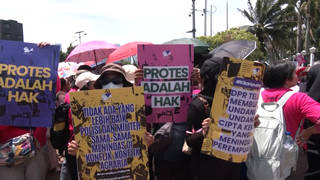
Topics
Jamaica’s prime minister denied opposition claims that recent gun battles between security forces and residents of a poor Kingston neighborhood were politically motivated. Addressing the nation Sunday night, Prime Minister P.J. Patterson said the violence was started by criminal gangs. He also promised a government investigation into last week’s gun battles, which killed at least 28 people, mostly civilians.
But opposition leader Edward Seaga of the Jamaica Labor Party accuses the government of staging a crackdown to persecute supporters in his parliamentary constituency of west Kingston, and is demanding that soldiers be withdrawn from the area.
It is widely acknowledged that Jamaica’s politicians created the violent gang culture in the 1970s when they armed residents of Kingston’s poor neighborhoods to intimidate voters as the two main parties fought for supremacy. For poor Jamaicans, which party is in power is a matter of survival since they rely on party patronage for food, shelter, jobs, and land. The violence reached its height in 1980, when about 800 people were killed in fighting related to elections that put Labor Party leader Edward Seaga in power.
Several weeks ago, gang warfare erupted again, ahead of general elections that must be held by December 2002. Then, on July 7, police moved in on a poor neighborhood in west Kingston in what they said was an attempt to seize weapons. Three days of street battles ensued. Now, at least 25 civilians are dead.
Guests:
- Ivone Sobers, chairperson of Families Against State Terrorism–(relatives of victims of police brutality). 1-876-977-3602
- Dawn Rowe, resident of Tivoli Gardens, the epicenter of the recent violence.
Related links:












Media Options